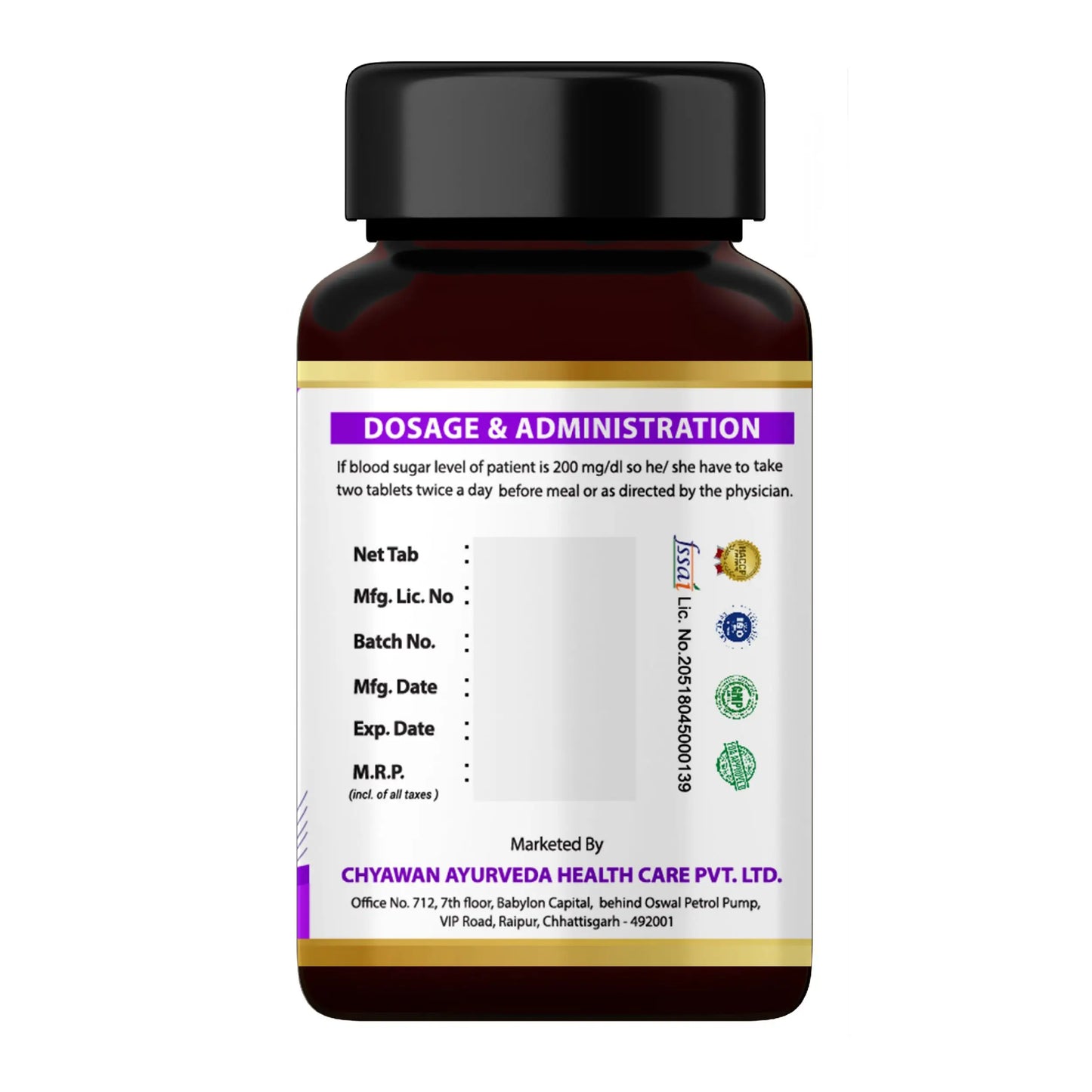Why a Daily Routine Matters for Diabetic Patients
A consistent daily routine helps diabetic patients manage blood sugar levels more effectively. Regular meals, timely medication, physical activity, and proper sleep reduce fluctuations, improve energy, and support long-term health. Routine creates structure, making it easier to stick to healthy habits and avoid complications.
Morning Routine for Diabetic Patients
-
Wake up at a consistent time – Supports stable metabolism.
-
Check fasting blood sugar – Monitor levels before eating.
-
Drink a glass of water – Helps hydrate and flush out excess sugar.
-
Do light exercise – 15–30 mins of walking, yoga, or stretching.
-
Eat a healthy breakfast – High fiber, low-GI foods (e.g., oats, dal cheela).
-
Take medication/insulin on time – As prescribed, with or after food.
- Plan your day – Set reminders for meals, meds, and activity.
Midday Routine for Diabetic Patients
-
Eat a balanced lunch – Include whole grains, protein, and non-starchy veggies.
-
Avoid high-carb or fried foods – Prevents post-meal sugar spikes.
-
Take medication or insulin if prescribed – Follow doctor’s timing strictly.
-
Stay active after lunch – A 10–15 min walk aids digestion and blood sugar control.
-
Check blood sugar if needed – Especially if on insulin or feeling unwell.
-
Stay hydrated – Sip water regularly throughout the afternoon.
-
Healthy snack (if needed) – Choose nuts, seeds, or a small fruit to avoid drops in sugar.
Evening Routine for Diabetic Patients
-
Do light exercise or take a walk – 20–30 minutes to help control post-dinner blood sugar.
-
Eat a diabetes-friendly dinner – Focus on high fiber, moderate protein, and low carbs (e.g., mixed vegetable soup, grilled paneer, whole grains).
-
Avoid heavy, oily, or late-night meals – Helps prevent blood sugar spikes during sleep.
-
Take evening medication or insulin – As prescribed by your doctor, timed with your meal.
-
Limit screen time & caffeine – Helps reduce stress and improve sleep quality.
-
Prepare for next day – Set reminders for meds, meals, and check-ups.
- Stay hydrated – Drink a glass of water, but avoid overhydration close to bedtime.
Night Routine for Diabetic Patients
-
Check your blood sugar before bed – Ensure levels are within your safe range to prevent nighttime lows or highs.
-
Have a light bedtime snack (if needed) – Choose a small protein-rich snack like a few nuts only if advised by your doctor.
-
Avoid heavy or sugary late-night snacks – These can cause overnight sugar spikes.
-
Take prescribed night medications or insulin – At the correct time and dose.
-
Practice stress-relief habits – Deep breathing, meditation, or reading to calm the mind.
-
Maintain good sleep hygiene – Stick to a consistent sleep schedule and avoid screens before bed.
- Keep emergency supplies nearby – Like glucose tablets or a small snack in case of sudden hypoglycemia during the night.
Medication and Monitoring Schedule in a Diabetic Routine
1. Follow a Fixed Medication Schedule
-
-
Take oral medications and/or insulin at the same time daily, as prescribed.
-
Use a pill organizer or set reminders to avoid missed doses.
-
2. Monitor Blood Sugar Regularly
-
-
Fasting (Morning) – Check before breakfast to see overnight control.
-
Post-Meal (1–2 hours after) – To observe how food affects your sugar.
-
Before Bed – Ensures safe overnight levels.
-
As needed – If feeling dizzy, weak, or symptomatic.
-
3. Keep a Log or Use a Glucose App
-
-
Track readings, meals, activity, and medication.
-
Helps you and your doctor understand patterns.
-
4. Adjust Based on Activity or Illness
-
-
Extra monitoring may be needed during sickness, travel, or stress.
-
Never change medication doses without doctor approval.
-
5. Routine Doctor Consultations
-
-
Share logs and discuss any fluctuations.
-
Review A1C every 3–6 months.
-
6. Check Expiry Dates and Storage of Insulin/Medicines
-
-
Store insulin properly (usually refrigerated).
-
Avoid expired or improperly stored medications.
-
Lifestyle Habits for Diabetic Patients
1. Eat Balanced Meals – Focus on whole foods, avoid large or irregular meals.
2. Stay Active – 30 mins of exercise daily, including strength training.
3. Stay Hydrated – Drink plenty of water throughout the day.
4. Get Enough Sleep – Aim for 7–9 hours of quality sleep each night.
5. Manage Stress – Practice relaxation techniques like yoga or meditation.
6. Limit Alcohol & Caffeine – Drink in moderation and avoid excess.
7. Track Your Health – Log blood sugar levels, meals, and activity.
8. Quit Smoking – Smoking harms blood sugar control and overall health.
9. Regular Check-ups – Visit your doctor for routine health monitoring.
10. Listen to Your Body – Adjust routine based on symptoms or doctor advice.
Sample Daily Routine for a Diabetic Patient
Morning (7:00 AM - 8:00 AM)
-
Wake Up at a Consistent Time – Start your day with a regular wake-up schedule.
-
Check Blood Sugar Levels – Monitor fasting blood glucose.
-
Drink Water – Start with a glass of lukewarm water to hydrate.
-
Light Morning Exercise – 15–30 minutes of stretching or walking.
-
Eat a Healthy Breakfast – Include high-fiber foods like oats, or whole-grain toast.
-
Take Medication/Insulin – As prescribed by your doctor, usually with food.
Mid-Morning (10:00 AM)
-
Healthy Snack (Optional) – A handful of nuts or a small piece of fruit if needed.
-
Stay Hydrated – Drink water or herbal tea.
Lunch (12:30 PM - 1:30 PM)
-
Balanced Meal – Include protein, vegetables, and a small serving of whole grains (e.g. salad).
-
Medication/Insulin – Take as per your schedule, after food.
-
Post-Meal Walk – A 10–15 minute walk aids digestion and blood sugar control.
Afternoon (3:30 PM)
-
Light Snack (Optional) – A low-GI snack, like carrot sticks or a small portion of Greek yogurt.
-
Stay Active – If possible, take the stairs or go for a short walk to maintain energy levels.
Dinner (6:30 PM - 7:30 PM)
-
Healthy Dinner – protein (e.g., tofu), vegetables, and a small portion of healthy carbs (e.g., brown rice, sweet potatoes).
-
Avoid Heavy Foods – Limit fried or sugary foods in the evening.
-
Take Evening Medication/Insulin – As prescribed.
Evening (8:00 PM - 9:00 PM)
-
Gentle Evening Activity – A light stroll or some light stretching to unwind.
-
Hydration – Drink a glass of water if needed.
-
Monitor Blood Sugar – Check your blood glucose before bed if needed.
Night (10:00 PM)
-
Bedtime Snack (Optional) – A small protein-rich snack (e.g., a few almonds) if recommended by your doctor.
-
Relax – Practice relaxation techniques like deep breathing or reading to reduce stress.
-
Sleep – Aim for 7-9 hours of sleep to support overall health and blood sugar control.
This routine provides structure, balancing healthy eating, regular activity, and medication management to help control blood sugar levels and improve long-term well-being.
Shri Chyawan's Ayurvedic Solution
Our ayurveda experts have formulated an ayurvedic medicine for diabetics - Diabetes Care Kit. It helps to control your blood sugar levels. This Ayurvedic medicine is meticulously crafted to assist in maintaining balanced blood sugar levels, promoting overall well-being through natural ingredients.
Shri Chyawan Diabetes Care Kit
The Kit contains four types of ayurvedic medicine that play a major role in the management of blood sugar levels:
- Madhumoksh Vati
- Chandraprabha Vati
- Karela & Jamun Ras
- Giloy Juice
1. Madhumoksh Vati - Shri Chyawan Ayurveda's Madhumoksh Vati Supports healthy blood sugar levels in the body and removes the problems caused by it.
Ingredients: The main ingredients used in Madhumoksh Vati are vasant kusumakarra, madhumeh harirasa, neem panchang, jamun beej, gudmar, karela beej, talmakhna, jalneem, amla, and baheda.
How To Use: If blood sugar level of patient is 200mg/dl, then he/she is required to take 2 tablet, twice a day, before meal or as directed by the physician.
2. Chandrabha vati - Shri Chyawan Ayurveda's Chandraprabha vati Supports healthy uric acid levels and may contribute to overall wellness.
Ingredients: It consists of Amla, Sandalwood, Daruharidra, Devdaru, Camphor, Cinnamon, and Pipal.
How To Use: Consume 1 tablet at night before going to bed. or as Directed by the Physician.
3. Karela Jamun Ras - Shri Chyawan Karela Jamun Ras supports metabolic health and may contribute to balanced blood sugar levels in the body and Jamun contains jamboline and jambosine, which are believed to support metabolic health.
Ingredients: The main ingredients of this juice/ras are Karela and Jamun juice.
How To Use: Consume 10ml, twice a day, after 1 hour post lunch and dinner or as Directed by the Physician.
4. Giloy Ras: Giloy Ras is an herbal and ayurvedic supplement known for its potential health benefits, including supporting overall well-being and Supports healthy blood sugar levels in the body.
Ingredients: It consists of juice extracted from Giloy.
How To Use: For children 5ml-10ml,
For adults, 10ml-20ml, thrice a day. or as Directed by the Physician.
Conclusion: Creating a Sustainable Daily Routine for Diabetic Health
A consistent daily routine is essential for managing diabetes effectively. By focusing on balanced meals, regular exercise, timely medication, and self-monitoring, diabetic patients can maintain stable blood sugar levels and improve overall health. Small, sustainable changes over time can lead to significant improvements in long-term health and well-being.
Free Consultation with our Expert Doctor- 📞📞 95162 64444















